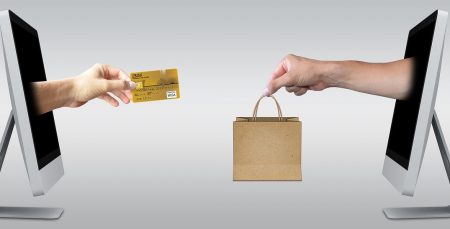
For many, the allure of gaining an extra income by selling unwanted clothes and furniture on eBay and Vinted, crafting handmade items on Etsy or renting out a room on Airbnb is undeniable. But a new set of rules introduced by HMRC is set to target those people who make a side hustle through such platforms.
Here we’ll look to understand what the rules are, and what you need to do if you’re making money online.
What are the new rules relating to online sellers?
From January 2024, online platforms like eBay and Airbnb will be required to collect data on how much money their users make. This information will be submitted to HMRC, who will ensure that individuals are reporting the correct amount of information and paying tax where necessary.
Etsy sellers, eBay sellers and Vinted sellers alike will be expected to pay tax on additional income that makes a profit of over £1,000 a year. This might not seem very much, but if you regularly sell designer clothes, children’s toys, accessories and furniture, it can easily add up. If you’re making £84 a month or more, be warned that you are may now be liable for tax, or risk a hefty fine.
It’s important to note that HMRC will NOT tax anyone who sells their own personal items as second hand. So for example, if you sell your child’s clothes or a table you no longer want, those won’t be included. This is purely about profit-making endeavours, in other words, buying and selling for a profit.
Record keeping from your side hustle is essential
If you’re an entrepreneur who operates a side hustle from selling online, if you’re not already, you should start keeping a detailed record of your earnings.
Track every sale, expense and relevant financial transaction related to your online marketplace activities. Adopting a systematic approach to record-keeping not only ensures compliance with HMRC regulations, but also simplifies the tax-filling process.
Tax on additional income – what you need to know
The introduction of taxes on extra income is not intended to discourage your side hustle, but rather to ensure a fair contribution to public finances. If you are earning over £1,000 a year from side gigs, it’s essential to understand the tax implications.
It’s not only eBay sellers and Etsy sellers that will have to pay tax on their extra income.
Anyone who is making a profit alongside another job should be paying tax or risk a fine from HMRC.
For example, if you rent out a property or holiday let on Airbnb, if you drive for Uber or if you have any form of freelance side hustle, you will need to complete a Self-Assessment tax return by the end of January each year.
This shows how much income you made for the previous financial year. Tax is only paid on the profits you make, and HMRC allow you to deduct certain expenses such as costs involved in packaging, shipping and any listing fees.
In addition to keeping detailed records of your financial transactions throughout the year, and completing your Self-Assessment tax return, it’s a good idea to put aside some money each month so that you can pay any tax due.
Unsure about taxable income on your side hustle?
If you’re making extra income through a side hustle, you shouldn’t let these latest changes put you off from your entrepreneurial endeavours. By staying informed, organised and proactive, you can continue to enjoy the rewards of your side hustle without any unwelcome surprises.
If you’re unsure about the taxable income on your side hustle, or for advice or help with tax or Self-Assessment tax returns, please do get in touch with us at Office Assistants.





